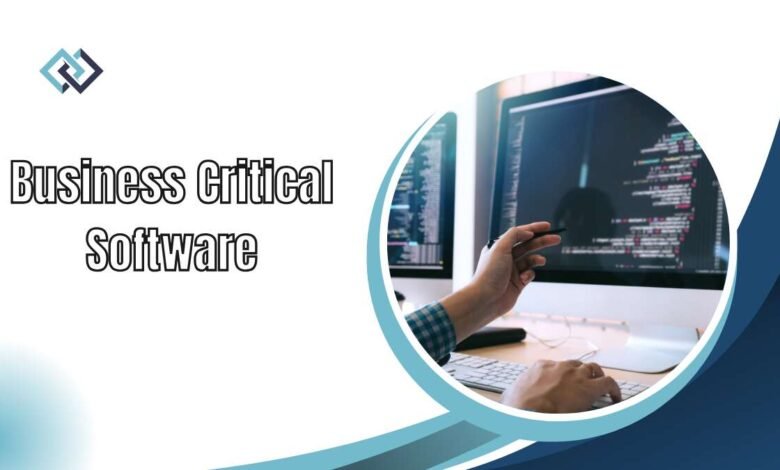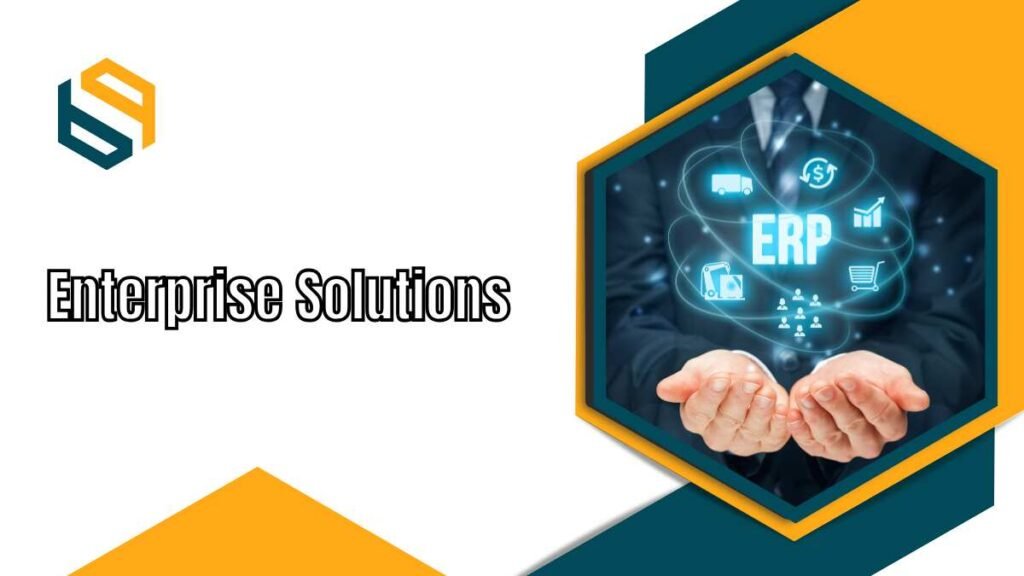Business Critical Software: Business Continuity and Growth

Business critical software refers to the applications and systems essential to the operation and success of an organization. These tools are the backbone of daily processes, supporting everything from financial transactions and customer service to supply chain management. When is compromised or unavailable, operations can grind to a halt, potentially leading to financial loss, reputational damage, and operational disruptions.
Importance of Modern Enterprises
Enables companies to operate smoothly, make informed decisions, and remain competitive. For large enterprises, these applications are foundational, supporting complex workflows and enabling rapid adaptation to changes in the market or customer demands.
Characteristics of Business Critical Software
Characterized by its resilience, high availability, and ability to handle large volumes of data. These systems are designed to ensure continuous operation, often built with fail-safe mechanisms to minimize downtime. Additionally, they must be scalable to grow alongside the business, and secure enough to protect sensitive information.
Types of Business Critical Software
Can be categorized into several types, each serving distinct roles within an enterprise. Here’s a closer look at some of these types:
Enterprise Solutions

Enterprise solutions are comprehensive software systems that cover a wide range of business functions. These solutions are typically used to manage resources, integrate departments, and streamline workflows. Popular enterprise solutions include ERP (Enterprise Resource Planning) systems that unify data and operations across an organization, providing a centralized view for decision-makers.
Mission-Critical Applications
Mission-critical applications are essential for maintaining specific business functions without interruption. These applications are custom-built to ensure the reliability and speed necessary for operations like online banking, healthcare systems, and emergency response services. The failure of these applications can lead to critical consequences, making them a priority for maintenance and uptime.
Operational Software
Operational software supports day-to-day business activities, from customer relationship management (CRM) to inventory tracking. These applications allow employees to perform their tasks efficiently and help ensure the business operates smoothly.
Core Business Systems
Core business systems are the foundational software applications that power essential functions such as payroll, billing, and supply chain management. These systems are often the most heavily used in an organization, requiring high availability and robust performance to handle large volumes of transactions without fail.
Key Features of High-Availability Software
High-availability software is designed to be dependable, even during high demand or technical disruptions.
Why Enterprises Rely on Business Critical Software
Offers stability, efficiency, and security—qualities essential for enterprises operating in competitive markets. For example, global retailers rely on high-availability e-commerce platforms to process transactions from thousands of customers simultaneously. Without reliable software, enterprises would struggle to meet customer expectations and maintain operational continuity.
How Ensures Operational Continuity
One of the primary functions of is to ensure that operations continue seamlessly. These systems often have backup mechanisms and data recovery protocols in place to protect against hardware failures, cyber-attacks, or other disruptions. With , enterprises can rely on continuous data flow, which is crucial for real-time decision-making.
The Job of Strategic Applications in Business Activities
Mission-critical applications play a vital role in sectors where operational delays can have serious consequences. For example, in the healthcare industry, electronic health records (EHR) systems need to be available at all times to allow medical professionals to access patient information. Similarly, in the finance industry, trading platforms must operate flawlessly to avoid financial losses.
Choosing the Right Core Business Systems
Selecting the right core business systems is a crucial step in building an efficient infrastructure. Companies must consider factors like scalability, integration capabilities, and user accessibility. Core business systems should be compatible with existing software and flexible enough to evolve with the organization’s needs.
Security in Business Critical Software
Security is paramount in given the sensitive information these systems handle. From financial records to customer data, organizations must implement strict security protocols to protect against unauthorized access and data breaches. This often involves encryption, regular updates, and compliance with industry standards, ensuring that sensitive information remains secure.
The Future of Business Critical Software
As technology evolves, so does . With advancements in artificial intelligence, machine learning, and cloud computing, business critical applications are becoming more intelligent and adaptive. These advancements allow companies to analyze data more effectively, automate routine tasks, and improve decision-making processes, paving the way for even more innovative solutions.
Challenges in Implementing
Implementing comes with its share of challenges. From the initial setup to ongoing maintenance, organizations may face issues like high costs, compatibility problems, and complex integration requirements. Additionally, staff training and adapting to new systems can be time-consuming, making it essential for companies to plan carefully.
Best Practices for Maintaining Business Critical Software
Maintaining involves regular updates, system monitoring, and addressing security vulnerabilities. Here are some best practices:
Case Studies of Effective Usage

Many companies have benefited from well-implemented . For instance, Amazon’s efficient supply chain management system has allowed it to dominate the e-commerce market by offering fast, reliable service. In the financial sector, JP Morgan’s risk management software helps the bank maintain compliance and minimize exposure to financial risks. Such case studies highlight the transformative power of business critical applications.
Conclusion
Cornerstone of modern enterprises, enabling efficiency, continuity, and security across various industries. These applications are designed to support essential operations, providing high availability, scalability, and resilience. As technology advances, will continue to evolve, offering more intelligent solutions to meet the demands of a dynamic market.
FAQs
What is the difference between and regular software?
Essential for maintaining daily operations in a company. Unlike regular software, its failure can cause significant operational and financial harm.
Why is high-availability important for business critical software?
High availability ensures that essential software remains functional even during disruptions, preventing potential losses and service interruptions.
Can small businesses benefit from business critical software?
Yes, small businesses also benefit from by improving efficiency and streamlining operations, although their systems may be simpler than those in larger enterprises.
How does cloud computing impact ?
Cloud computing enhances scalability and accessibility, allowing companies to manage their with greater flexibility and often lower costs.
What industries rely most heavily?
Industries such as healthcare, finance, retail, and logistics heavily depend on for efficient operations and customer satisfaction.




